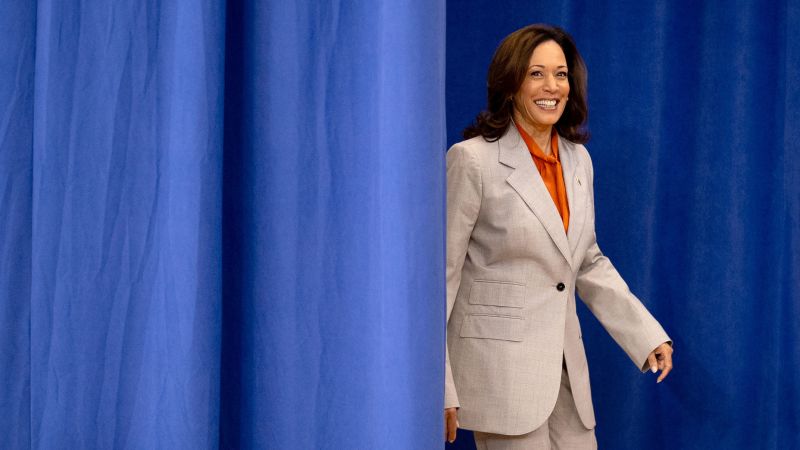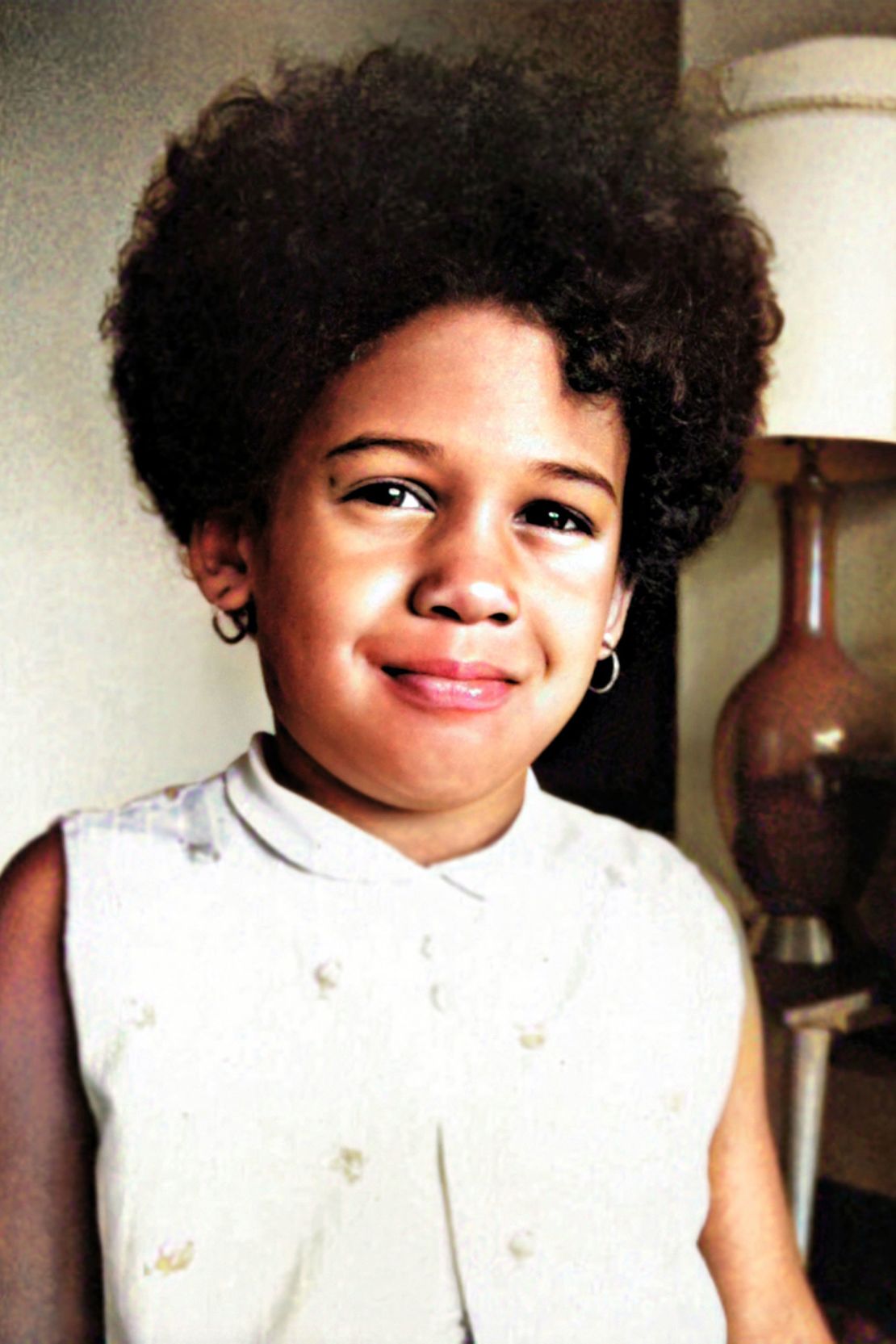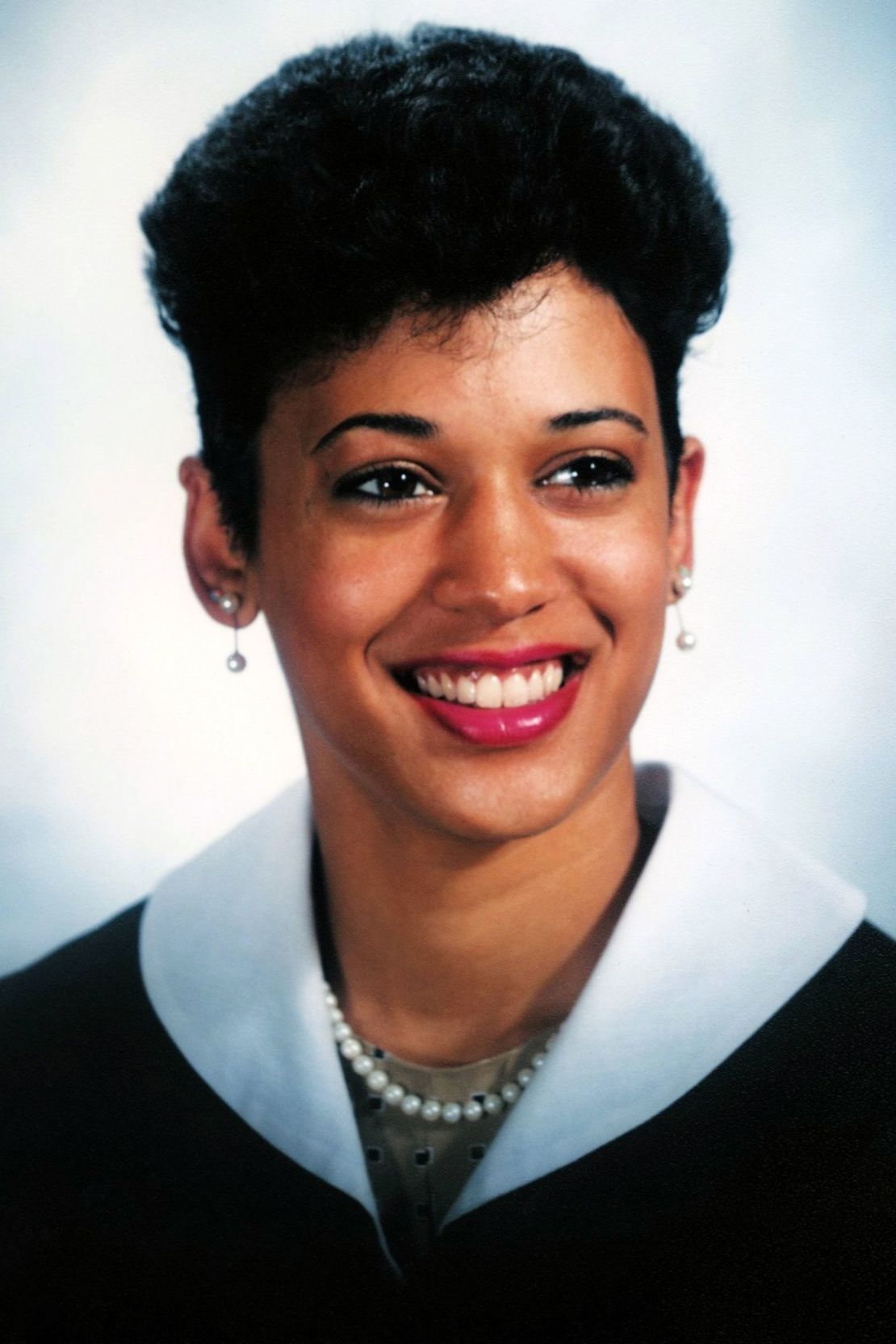CNN
—
President Joe Biden’s decision to end his reelection bid and endorse Vice President Kamala Harris to replace him in the campaign has upended the presidential race and shined a renewed spotlight on Harris.
Her career path from prosecutor to politician has been defined by many firsts: She was the nation’s first Indian American senator and California’s first female and South Asian attorney general. Harris is the first woman to become vice president, as well as the first Black or Asian American person to hold the office.
Now, as momentum builds to position her as the Democratic Party’s 2024 presidential nominee, Harris could be on the cusp of becoming the country’s first female president.
Here’s what to know about Harris’ life and the moments that defined her in politics.
Kamala Devi Harris was born in Oakland, California, on October 20, 1964.
In the introduction to her 2019 memoir, “The Truths We Hold,” Harris noted that her name is pronounced “‘comma-la,’ like the punctuation mark” and that it means “lotus flower,” in homage to an important symbol in Indian culture.
Harris’ father, Donald, immigrated to the United States from Jamaica to study economics at the University of California at Berkeley. He is now a professor emeritus of economics at Stanford.
Her mother, Shyamala Gopalan Harris, immigrated to the US from southern India in the late 1950s. She earned her doctorate in nutrition and endocrinology at Berkley and became an acclaimed breast cancer researcher before she passed away in 2009.
Harris writes that her parents “met and fell in love at Berkeley while participating in the civil rights movement,” but the couple later divorced when Harris and her sister, Maya, were young.
Harris credits her mother for “shaping us into the women we would become” and for teaching her daughters to be proud of both their Indian and Black heritage.
“Our classical Indian names harked back to our heritage, and we were raised with a strong awareness of and appreciation for Indian culture,” Harris wrote in her memoir.
“My mother understood very well that she was raising two Black daughters. She knew that her adopted homeland would see Maya and me as Black girls, and she was determined to make sure we would grow into confident, proud Black women.”
In 1982, Harris enrolled at Howard University, a historically Black university in the heart of Washington, DC.
There, she joined Alpha Kappa Alpha, the country’s oldest Black sorority, and earned a bachelor’s degree in political science and economics. She would later become the first HBCU graduate to be elected vice president.
After college, Harris returned to California and attended law school at the University of California Hastings. When she decided to pursue a career as a prosecutor in the district attorney’s office, Harris said she knew she would have to defend her choice to her friends and family.
“America has a deep and dark history of people using the power of the prosecutor as an instrument of injustice,” she wrote in her memoir. “But I also knew that what was wrong with the system didn’t need to be an immutable fact. And I wanted to be a part of changing that.”
After graduating from law school, Harris spent three decades as a prosecutor, serving as a deputy district attorney for Oakland’s Alameda County before she was elected in 2004 to be district attorney of San Francisco.
In 2011, Harris became the first Black American, first woman, and first Asian American elected to be the attorney general of California.
During her time as attorney general, Harris met and befriended Biden’s eldest son, Beau, who also served as Delaware’s attorney general.
Harris’ record as a prosecutor – and later California’s top law enforcement official – came under scrutiny during her 2020 presidential campaign, with progressive activists and law enforcement advocates questioning several decisions she made in office, including her stance against the death penalty.
In 2014, Harris married Doug Emhoff, a former managing partner at a law firm. The couple met on a blind date and Harris later joked in her memoir that her staffers referred “to that era as A.D. – ‘After Doug.’”
Emhoff is the nation’s first second gentleman.

In 2015, Harris launched a campaign for the US Senate, vying to replace longtime California Sen. Barbara Boxer.
Both former President Barack Obama and then-Vice President Biden endorsed her campaign and she would later write in her memoir that election night in 2016 was “surreal” for many reasons – not only because she won.
“I was a US senator-elect – the first Black woman from my state, and the second in the nation’s history, to earn that job,” she wrote.
But, as it became clear that Donald Trump would become the 45th president of the United States, Harris said she abandoned the speech she originally wrote under the assumption that the country would elect its first female president, and instead urged the supporters “to be committed to bringing our country together.”
During her time in the US Senate, Harris served on the Senate Judiciary Committee as well as the Select Committee on Intelligence before launching a bid for the White House in 2019.
During a crowded presidential primary debate that year, Harris confronted then-Vice President Biden’s record, including his previous stance on desegregation and school busing.
Biden later told CNN after the debate, “I was prepared for them to come after me. … But I wasn’t prepared for the person coming at me the way (Harris) came after me. She knew Beau, she knows me.”
Biden’s decision to later select Harris to be his running mate came as a surprise to some, but he would describe it as “the best decision I’ve made.”
On January 20, 2021, Harris was sworn in as the country’s first female, first Black and first South Asian vice president. In her role as president of the Senate, according to the White House, Harris set a new record for the most tie-breaking votes cast by a vice president.



